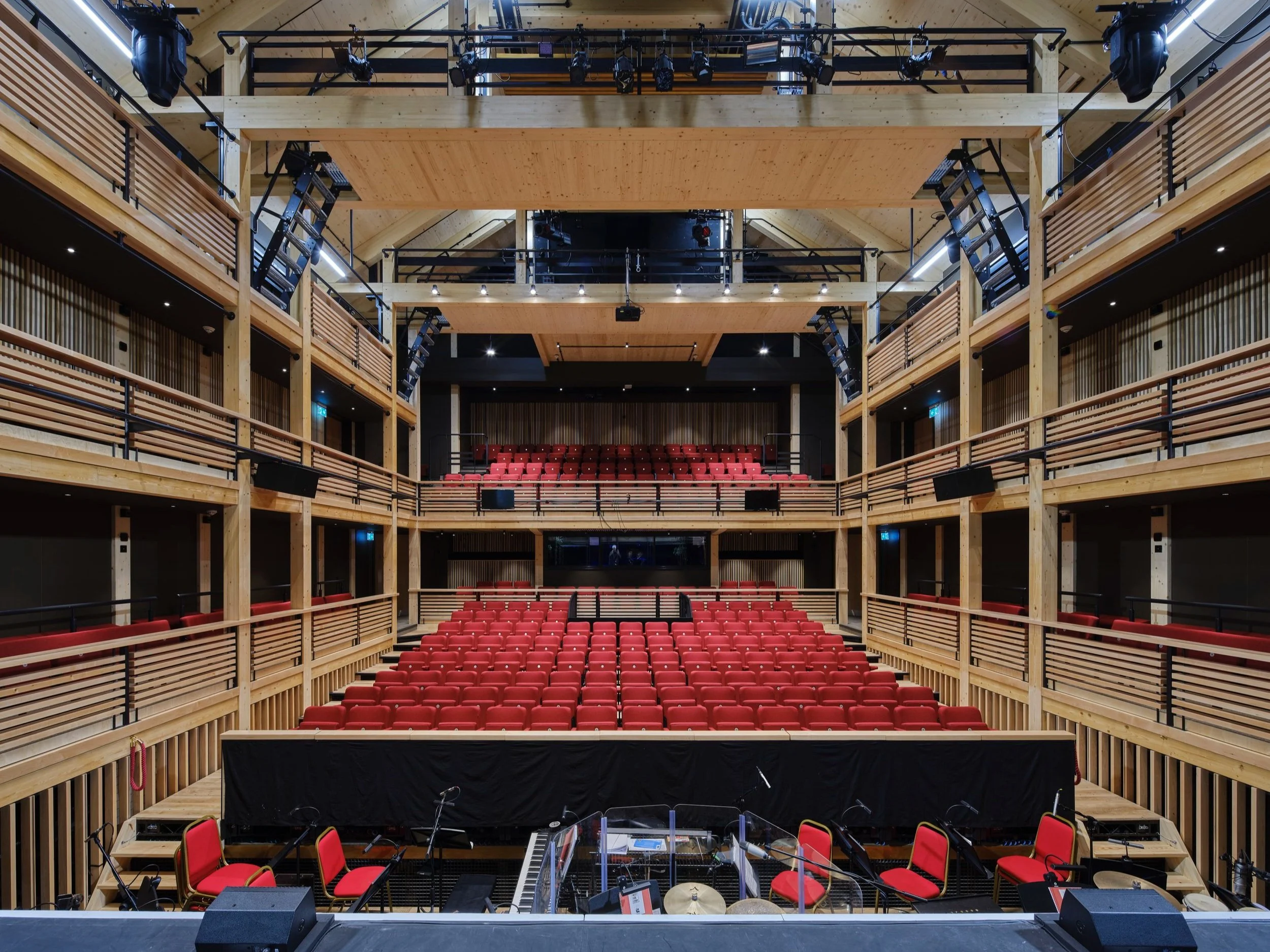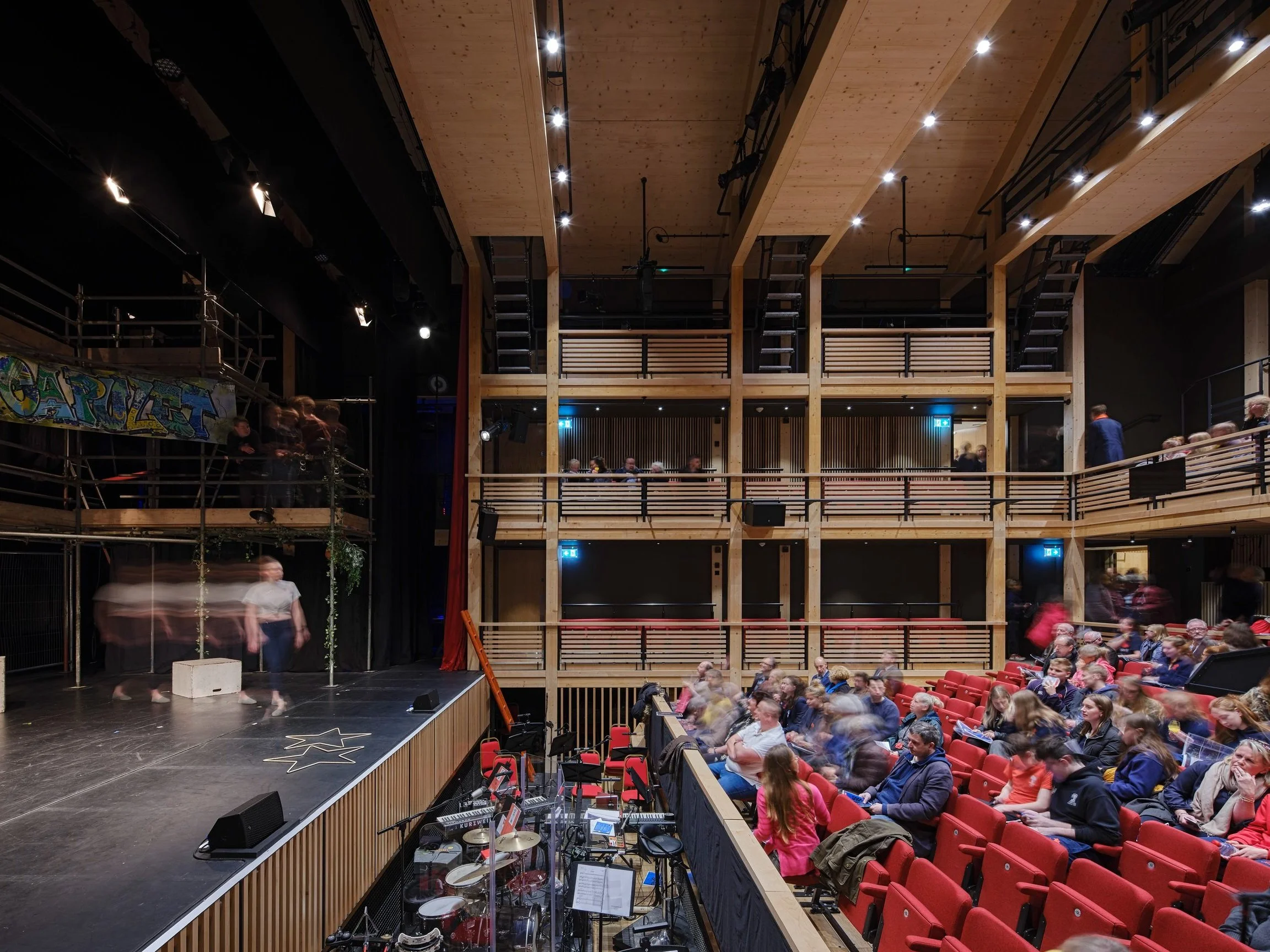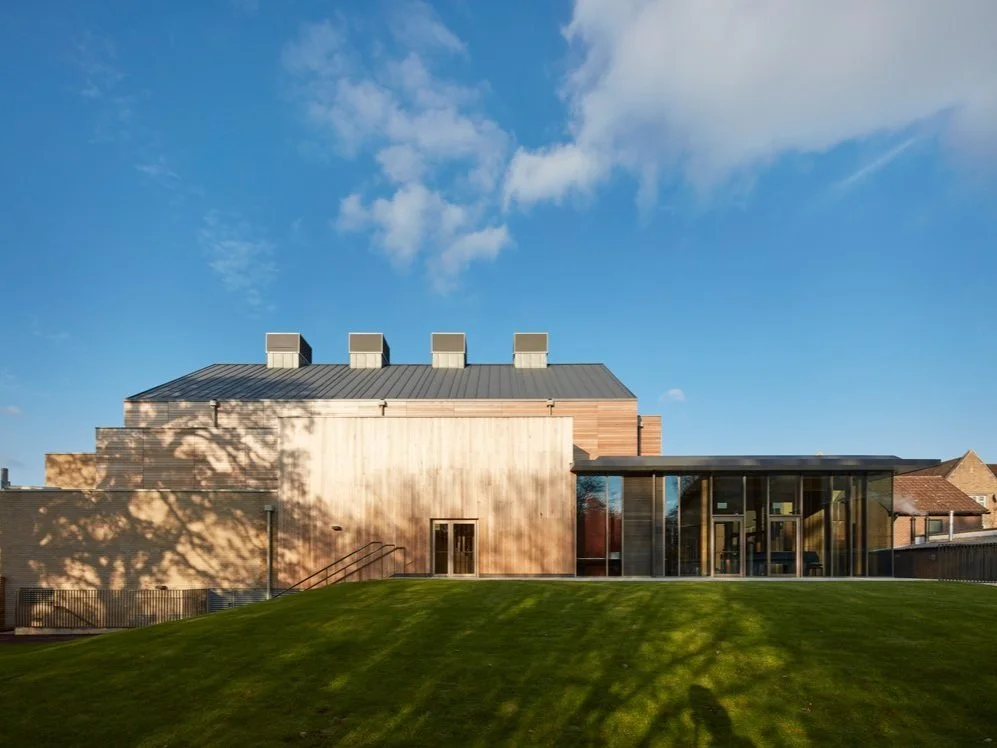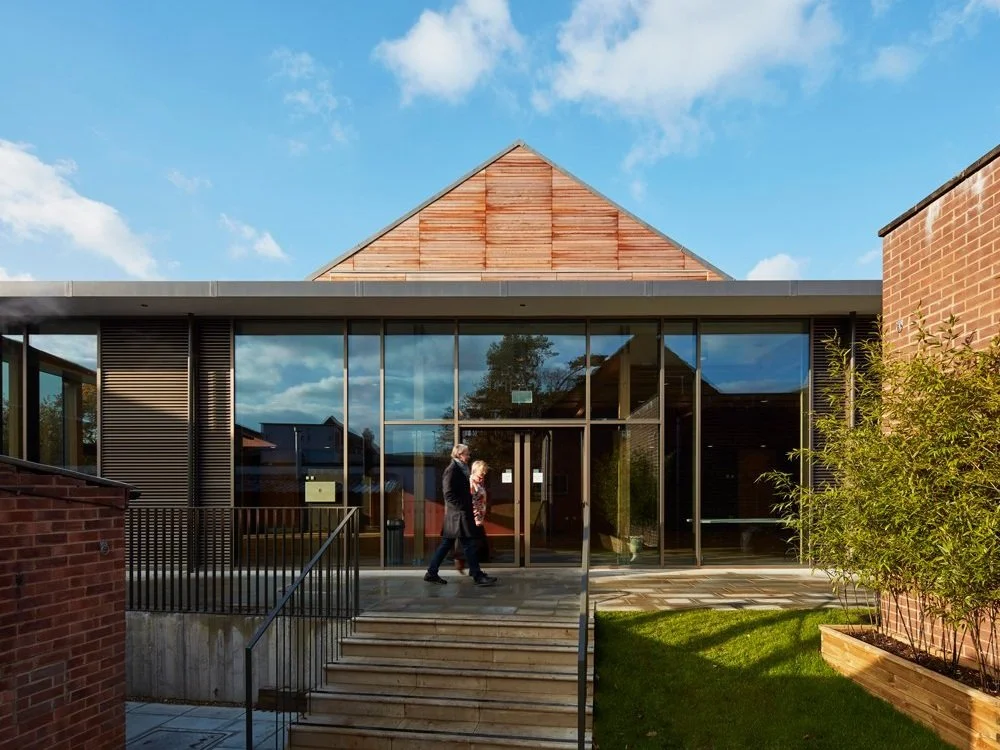LEARNING schools
NEW BURY THEATRE
CLIENT: HURSTPIERPOINT COLLEGE
Hurstpierpoint College is a co-educational day and boarding school situated within a 140-acre campus on the borders of the South Downs National Park in West Sussex. The new Performing Arts Centre, delivered on time and on budget, provides the College with a flexible, 370-seat courtyard theatre that responds to a number of different formats - drama, dance, music theatre and musical performances.
The tall volume of the auditorium follows the form of an adaptable courtyard theatre space providing accommodation for an audience arranged on two main tier levels with a third technical level giving access to the lighting bridges.
BFF worked closely with the drama department to explore how they would use the space and to provide variable stage formats to allow for an end-stage (with or without a soft proscenium), extended forestage (that can also be levelled with the stalls floor or lowered to form an orchestra pit) and thrust stage configurations.
The stage area has flying facilities including motorised winches and a hemp line system that will allow for further expansion and enhancement in the future. The technical form and equipping of the auditorium was developed closely with theatre consultants, Charcoalblue, who also advised on the acoustic control and finishes in the auditorium.
“This is a building of which we are all immensely proud and one that will enable the performing arts at Hurst to scale the next pinnacle of achievement.”
Theatre buildings are generally characterised by a distinct ‘front’ and ‘back’. At Hurst, the new PAC can be viewed from all directions and so the building’s composition is expressed with the central mass of the auditorium rising in the middle, with four columnar roof vents punctuating the roof ridge, and the ancillary spaces wrapped as a secondary layer around the outside. We adjusted the College’s existing masterplan so that the front faces towards the College’s main entrance, rather than the large parking areas at the rear.
The fully glazed foyer space is designed to present an inviting aspect when seen from the main College buildings across the intervening open green space. Currently, the practice room wing of the adjacent Music School partly masks this approach - but as the College’s masterplan is implemented this aspect will be opened up putting the new PAC in its proper context.
European timber, in the form of glu-lam beams and columns or cross-laminated timber (CLT) floor and wall panels, was used as the main structural component. This has the benefit of a significant carbon reduction (176 tonnes of embodied C02) over conventional construction materials such as steel and concrete.
The building is unusual for its type in that it is naturally ventilated, not using any air-conditioning. A slight slope on the site meant that a ‘cellar’ or under-croft could be built which would cool fresh air coming into the building in the summer. Four chimney stacks on the roof allow warm stale air to exhaust to outside. Fresh air is delivered and heat extracted using the principle of the natural buoyancy of air at different temperatures and the thermal storage properties of the building.
Due to the high thermal inertia of the under-croft, fresh cool air can be supplied to the auditorium during the day without the need for air conditioning. In winter, the stale air is replaced via the chimney, introducing cold air at high level; by the time this heavier cold air has dropped to the level of the seating, it has mixed sufficiently to a comfortable temperature avoiding cold draughts and the need for additional heating.
The theatre is predominantly clad in western red cedar boarding, and the thermal performance of the building envelope is excellent due to the high levels of insulation and air tightness.





